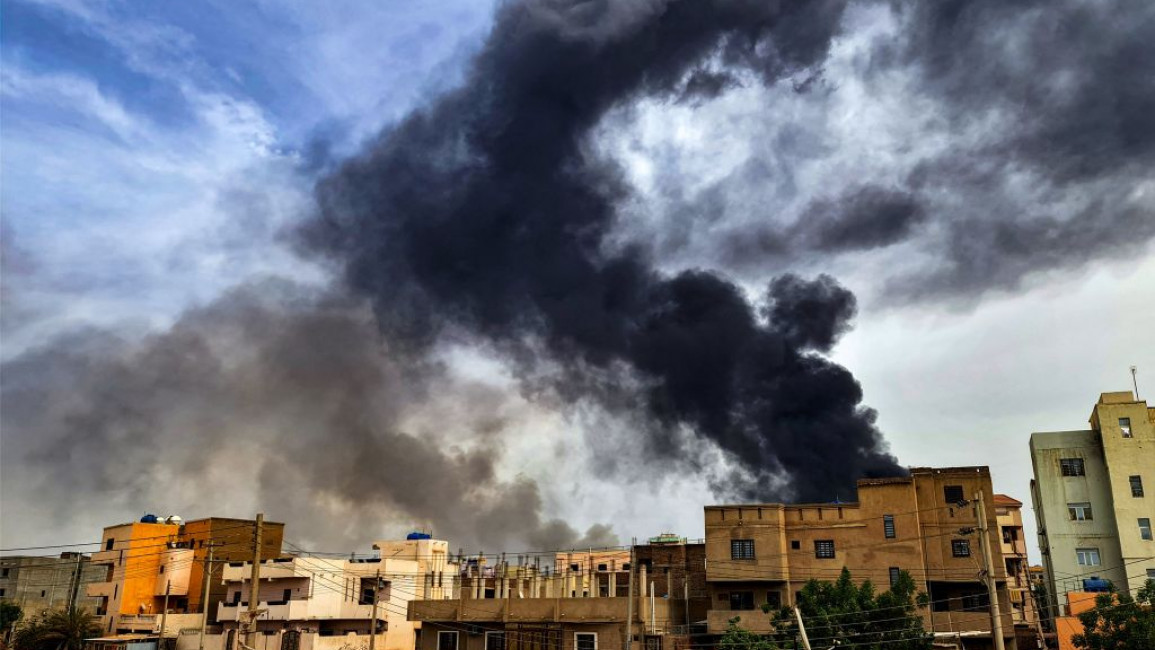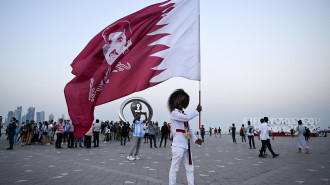
In the chaos of war, a desperate search for Sudan's missing

Sudan’s ‘Missing’ public Facebook group, which has thousands of members, has been flooded for weeks now with similar posts: short texts, a photo, and a phone number.
One recent appeal tells of a young man named Ibrahim who two days before Eid al-Adha, which began at the end of June, left home in Sudan’s capital Khartoum to travel to Madani, a city to the south, before vanishing without a trace.
Another post asks about Jihad, a woman who left her home at the beginning of June and is yet to return. A third recounts the case of Sami, a young man from Omdurman, who is last known to have left home in mid-June in a red T-shirt and his bike.
All have another trait in common: loved ones asking for any information that might lead to the whereabouts of their missing friends and relatives.
As the war in Sudan between the army and the paramilitary Rapid Support Forces (RSF) enters its fourth month, the flurry of posts on this and other social media groups reflects the growing number of people who are going missing or being forcibly disappeared by one of the warring parties amid the chaos of the conflict.
"In Khartoum state alone, there have been 451 documented cases of civilians who have been forcibly disappeared since the war began on 15 April. The actual number is feared to be much higher"
Enforced disappearances
In Khartoum state alone, there have been 451 documented cases of civilians who have been forcibly disappeared since the war began on 15 April, said Gillian Kitley, director of the UN’s Office of the High Commissioner for Human Rights (OHCHR) in Sudan. The actual number is feared to be much higher.
Most of those who have been disappeared have been arrested by either the army, and in particular the Military Intelligence, or the RSF, often on suspicion of supporting the other side in the war, said Kitley, whose office works hand in hand with civil society groups.
“Any enforced disappearance is of concern because these are people who, if they have been detained by one of the parties, are being held incommunicado, so the families are not informed of their whereabouts or why they are being held,” Kitley told The New Arab.
“The detention places are also not of public knowledge, so there is no legal oversight over the detention of these people,” she added.
Most of those disappeared by the army or Military Intelligence are held in military bases, but also in police stations and military intelligence facilities, Kitley said.
They have been able to document some 130 cases of civilians being held at the Wadi Seidna military airbase, some 20 kilometres north of Khartoum and the site that was used to carry out many of the international evacuations that took place in April and May.
In the case of the RSF, at least six locations are known to be used as informal places of detention in Khartoum state. These include the group’s bases in Kafouri and Sports City, and civilian buildings in the neighbourhoods of Riyadh, Al Nasser, and others in Bahri.
“It’s also very likely that some of those reported disappeared are dead, and the families have no information about the circumstances of their death. And because it is so difficult to collect the bodies of people killed in the conflict, it’s quite likely that families may never know what happened to them,” Kitley said.
“This is obviously a very distressing situation for the families,” she added.
On 25 June, a group of Sudanese lawyers officially brought more than 450 allegations of enforced disappearances before the Chief Public Prosecution of Madani, who recognised his jurisdiction over the cases even though they occurred in Khartoum state, due to the exceptional circumstances of war, Kitley explained.
|
|
Missing
In addition to the cases of civilians who have been forcibly disappeared, there are also cases of people who have simply gone missing during the conflict, without the motives being immediately clear.
Since the outbreak of war and until mid-June, at least 305 people have been documented missing under these circumstances, according to Fadia Khalaf, co-founder of the Missing Initiative, a local monitoring group. They also believe that the real number is much higher.
Of all the cases of disappearances tracked by the Missing Initiative, the vast majority took place in the city of Khartoum, followed by Omdurman and Bahri. The group has only been able to document over a dozen cases in other cities.
Most of these missing persons are young men aged between 20 and 35, followed by those between 35 and 50, but there are also about 20 minors. Less than 10% are women.
"Most of those who have been disappeared have been arrested by either the army, and in particular the Military Intelligence, or the RSF, often on suspicion of supporting the other side in the war"
They believe that most have been arrested, particularly by the RSF. But the heavy fighting in Khartoum and the indiscriminate nature of many attacks are also killing many civilians whose bodies are piling up unidentified in hospitals, morgues, graves or in the streets.
“In such a situation, [with] the war we are going through and the lack of connectivity, you will never easily know if they are actually missing because something bad happened to them or [because] they have been kidnapped or forcibly disappeared,” Khalaf told TNA.
“Another reason is that some people had issues going from one place to another, from one state to another, or crossing the border, and we don’t know what happened to them,” she added.
In response to the high number of missing persons that have been recorded in Khartoum, the International Committee of the Red Cross (ICRC) has also set up a hotline for families to report missing relatives.
The situation outside Khartoum state is much more difficult to monitor, but it is believed that especially in the war-torn Darfur region there have also been numerous cases of enforced disappearances and hundreds of people have gone missing.
At least six cases of enforced disappearances of community leaders and activists have been documented in El Fasher, the capital of North Darfur, according to a lawyer who prefers to remain anonymous for security reasons. He told TNA that the last case took place two weeks ago, and the others happened in the first week after the outbreak of war.
The same lawyer said that the most affected state in the region, however, is West Darfur, and in particular the area around its capital, El Geneina. He explained that there are at least 500 people reportedly known to have been forcibly disappeared there alone, mostly community leaders, members of civil society, and young activists.
Aua Baldé, the Chair-Rapporteur of the UN’s Working Group on Enforced or Involuntary Disappearances, expressed worry about the situation.
“Given the history of violations of international humanitarian law and human rights law in Sudan by both State forces and non-state actors, [we] remain concerned about the overall worsening of the human rights situation in the country, including the risk of the likelihood of the continued practice of enforced disappearances and acts tantamount to enforced disappearances,” she told TNA.
|
|
Social media
The lack of clear legal paths or alternative ways to find out the whereabouts of missing persons is turning social media, and particularly Facebook, into one of the main spaces to report cases and ask for help from other people.
Similarly, it is civil society groups such as the Missing Initiative and human rights lawyers that are proving most capable of monitoring and documenting cases of missing persons.
Although the number of people who have been subjected to enforced disappearances or who have gone missing since the beginning of the war has skyrocketed, this is far from the first time Sudan has witnessed this phenomenon and these practices in recent years.
"These are people who, if they have been detained by one of the parties, are being held incommunicado, so the families are not informed of their whereabouts or why they are being held"
The Missing Initiative, for example, was initially established in 2019 after members of Sudan’s now-warring forces forcibly dispersed a massive sit-in in Khartoum calling for the military’s departure from power following the fall of former dictator Omar Al-Bashir. Hundreds were killed or injured, and dozens of people remain missing today.
After the coup staged in October 2021 by the parties now at war, which put an end to the fragile democratic transition that began in Sudan in the summer of 2019, numerous enforced disappearances were reported, especially following anti-coup protests.
Marc Español is a Catalan journalist based in Cairo.
Follow him on Twitter: @mespanolescofet




